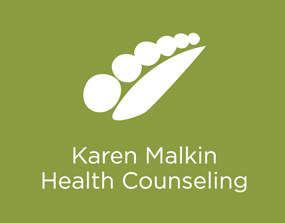HACKING YOUR BRAINS REWARD SYSTEM TO CHANGE HABITS:
Scientists are racing to study the characteristics of the coronavirus so that we can know precisely how contagious and deadly it is ? and act accordingly. Uncertainty abounds.
Without accurate information, it is easy for our brains to spin stories of fear and dread.
When we can?t control our anxiety, that emotional fever spikes into panic. Panic is defined as ?sudden uncontrollable fear or anxiety, often causing wildly unthinking behavior.? Overwhelmed by uncertainty and fear of the future, the rational parts of our brains go offline. Logically, we know that we don?t need a six-month supply of toilet paper, but when we see someone?s cart piled high, their anxiety infects us, and we go into survival mode.
So?how do we not panic? Too many times, I?ve seen my anxious clinic patients try to suppress or think themselves out of anxiety. Unfortunately, both willpower and reasoning rely on the prefrontal cortex, which isn?t available at these critical moments. Instead, I start by teaching them how their brains work, so that they can see how uncertainty weakens the brain?s ability to deal with stress, priming it for anxiety when fear hits.
But this is only the first step.
To hack our brains and break the anxiety cycle, we need to become aware of two things:?that?we are getting anxious or panicking and?what?the result is. This helps us see if our behavior is actually helping us survive or in fact moving us in the opposite direction ? panic can lead to impulsive behaviors that are dangerous; anxiety is both acutely mentally and physically weakening and a slow burn that has more long-term health consequences.
Once we are aware of how unrewarding anxiety is, we can deliberately bring in the ?bigger, better offer.? Since our?brains will choose more rewarding behaviors?simply because they feel better, we can practice replacing old habitual behaviors ? such as worry ? with those that are naturally more rewarding.
For example, if we notice that we have a habit of touching our face, we can be on the lookout for when we act that behavior out. For example:
If we are starting to worry: ?Oh no, I touched my face, maybe I?ll get sick!?
Instead of panicking, take a deep breath and ask: ?When was the last time I cleaned my hands??
Think. ?Oh, right! I just washed my hands.?
Just by taking a moment to pause and ask the question, we give our prefrontal cortex a chance to come back online and do what it does best: think.
Here, we can leverage certainty: If we?ve just washed our hands and haven?t been out in public, the likelihood that we?re going to get sick is pretty low.
The more we can see the positive feeling and effects of good hygiene and compare them to the negative feeling of uncertainty or getting caught in anxiety, the more our brains naturally move toward the former, because it feels better.
How do I know this works? My lab has studied these mechanisms for decades. We?ve recently found that simple awareness training (delivered through an app) can reduce anxiety by 57 percent (in a study with anxious physicians) to 63 percent (in a study with people with generalized anxiety disorder) in two to three months.
Understanding these simple learning mechanisms will help all of us ?keep calm and carry on? (which is how London dealt with the uncertainty of constant air raids in World War II) instead of getting caught in anxiety or panic in the coming days and whenever we face uncertainty.
When our prefrontal cortex comes back online, we can compare anxiety to what it feels like to be calm. To our brains, it?s a no-brainer. It simply takes a little practice so that the bigger, better offers become new habits.
By Judson A. Brewer, an associate professor at Brown University and the author of ?The Craving Mind.? First appeared in The New York Times.
Click here for full podcast playlist.













